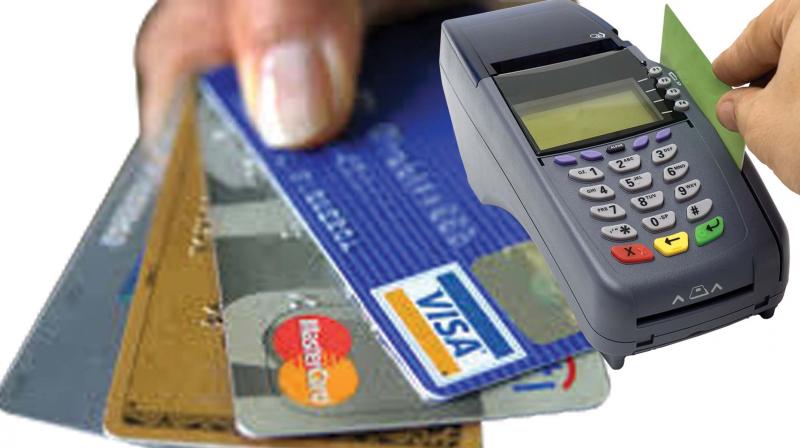After demonetisation: Kerala govt still on offline mode
E-payment penetration remains weak in various utility departments.

Kochi: The much talked-about cashless economy may remain a pipe dream for most people dealing with the utility and other payments involving government departments and local bodies in Kerala. The E-payment system remains a totally alien concept for most local bodies including the city corporations such as Kochi, Kozhikode and Thiruvananthapuram. The E-payment system introduced by entities such as Kerala State Electricity Board (KSEB) and Kerala Water Authority (KWA) is yet to gain traction as majority of the people are still using hard cash route for making the utility payments. The penetration of the E-payment system is less than 15 per cent of the total of KSEB, says a spokesman.
"Though we introduced E-payment system two years back, it is yet gain popularity", he said. The currency crunch and the new-found thrust placed on cashless economy by the Union Government may help the system to be more popular. "The E-payment system of KSEB is user- friendly compared with that of the KWA", said Krishna Kumar, who shifted to E-payment mode two months ago.
The local bodies are the worst in terms of introducing E-payment despite the talk about the knowledge economy by all and sundry. Kochi corporation, known for flaunting its credentials as the fastest growing IT hub in the state, is yet to have a full-fledged E-payment facility.
Although some modules of the long drawn E-governance have been implemented, the crucial components like property tax or professional tax payment are yet to be shifted to the e-payment system. Only services like registration of death, birth and marriage and public grievances can be availed online. The average daily tax collection of the corporation has plummeted to '10-12 lakh per day from '25 lakh per day following demonetization thanks to the non-existence of online payment facility.
In Kozhikode corporation, property taxes and a portion of the advertisement taxes were paid through e-payment, said officials. However, the majority still prefer to pay at the billing counters, they add. "In the last financial year, only 20 to 30 per cent of the users utilised the provision for e-payment", they said. Although officials said e-payment was user-friendly, some 'technical glitches' might be preventing the taxpayers from using it. The Thrissur corporation is not at all having a system in place for the public to pay taxes online. Deputy mayor Varghese Kandam told DC that the civic body would start receiving online payments within six months. "Once we implement the system, all payments could be made online from across the globe", he added.
The average daily revenue collection of Thiruvananthapuram corporation has slipped to Rs 35-40 lakh from the levels of Rs 50-60 lakhs. The corporation official who spoke to this news paper was not sure whether the online payments had really increased after demonetisation. Normally, the average online transaction is just around 1,000 in a year. The ‘Sankhia’ software used by the local body for the e-payment is not user friendly, sources said. The corporation is trying to strike a deal with State Bank of Travancore to get 10 or 15 swiping machines installed at its counters. The corporation draws most of its revenue from building tax and professional tax that show a clear surge between September and February.

